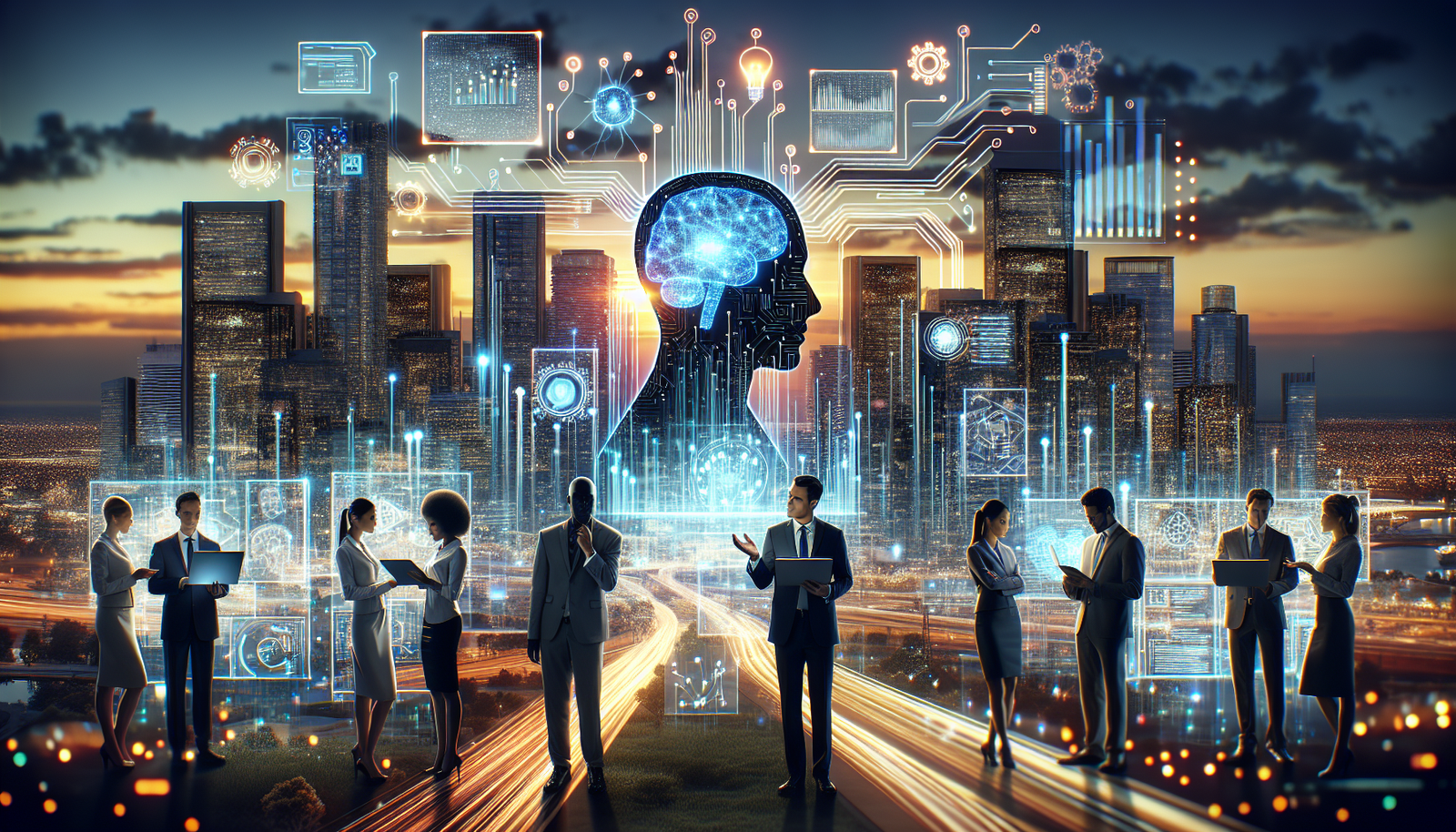As we stand at the intersection of artificial intelligence (AI) and quantum computing, we witness a transformative era reshaping our social, economic, and policy landscapes. These technologies promise groundbreaking advancements, but they also introduce complex challenges that require careful examination and thoughtful dialogue. Understanding the impacts of AI and quantum computing is crucial for navigating the future, as their integration into various sectors could redefine how we approach problems, create opportunities, and shape societal norms. This exploration invites us to consider the implications of these powerful tools on our world.
The Transformative Effects of AI and Quantum Computing on Society
The convergence of artificial intelligence and quantum computing is revealing a microcosm of possibilities that can reinvent industries and improve human lives holistically. For anyone questioning the significance of these innovations, think about this: AI has already begun to change the way we work and live, while quantum computing stands at the brink of unlocking unsolvable problems. Neyrotex.com articulates the potential of these technologies, but also ignites debate over the ramifications on society, economics, and policy.
The Power of AI: What’s at Stake?
Let’s delve into AI first. The rise of AI has revolutionized fields ranging from healthcare to finance, marketing to education. Machine learning and deep learning techniques have made it possible to analyze vast amounts of data at lightning speed, providing insights that were previously unreachable. Imagine a world where doctors can accurately predict diagnoses using AI algorithms, or where financial institutions can detect fraud patterns in split seconds.
- Healthcare: AI models assist with early disease detection and personalized treatment plans.
- Finance: Algorithms predict market trends with unprecedented accuracy, reshaping trading strategies.
- Education: Adaptive learning platforms use AI to tailor educational experiences to individual student needs.
However, as we embrace these capabilities, we cannot ignore the social implications. The fear of job automation looms large, with estimates forecasting that up to 50% of jobs could be susceptible to automation by 2030. This presents pressing questions: How do we prepare our workforce for this transition? What support systems do we need to implement?
Quantum Computing: The Game Changer
If AI is like placing the right pieces on a chessboard to win, quantum computing is akin to flipping the board entirely. What makes quantum computing so mind-bendingly powerful is its ability to harness quantum bits (qubits) that can exist in multiple states simultaneously. This fundamentally different way of processing information allows quantum computers to solve complex problems far beyond the capabilities of classical computers.
The Economic Impacts
With the integration of AI and quantum computing into the economy, businesses will need to adapt their strategies to meet a new frontier of competition. Reports suggest that the quantum computing market could reach $2.5 billion by 2026, creating economic opportunities and potential disparities.
- Consumer Offering: Enhanced products and services powered by robust computational models.
- New Markets: The industries related to quantum technologies could rise sharply, encouraging investments and job creation.
But with opportunity comes displacement. The marginalization of sectors unable to integrate these technologies raises concerns regarding economic inequality. Who will benefit from these enhancements, and who will be left behind? A thoughtful dialogue surrounding regulation and equitable access to AI and quantum resources is imperative.
Policy Implications and Ethical Considerations
As we march forward, the policymakers must grapple with ethical implications that emerge from AI and quantum computing. The rapid technological pace pushes regulatory frameworks to their limits—often leaving them outdated and unprepared. Key questions arise:
- Accountability: Who is responsible when AI algorithms yield biased outcomes?
- Privacy: How do we protect user data in a world increasingly driven by algorithms and quantum insights?
- National Security: How should governments approach quantum technology, considering its potential uses in cybersecurity and cryptography?
Many governments are already investing heavily in these areas, with the U.S., China, and EU leading the charge. This arms race of innovation is influencing global economic leadership and raising the stakes in international relations. Neyrotex.com emphasizes the necessity of global cooperation in establishing frameworks that safeguard societal interests.
How Can Society Adapt?
Now that we have peered at both the opportunities and challenges of AI and quantum computing, how can society adapt to this brave new world? Educating the current and future workforce will be pivotal. Schools and universities must focus on STEM education as well as ethics and philosophy—preparing individuals not only for technical roles but also for ethical decision-making in the application of such technologies.
Moreover, businesses and organizations will need to adopt a flexible approach. Innovations like flexible employee training programs can better prepare workforce members for shifting roles in a rapidly evolving marketplace. The investments in reskilling and upskilling could be the difference between plateauing profits and thriving growth.
The Global Landscape
Still, this conversation wouldn’t be complete without considering how these technologies interact on a global scale. Different countries will have different interpretations and applications of these innovations, resulting in varied social outcomes. The divide may widen between those who can afford to deploy AI and quantum technologies and those who cannot, leading to global inequality that could shroud the potential benefits.
- Collaboration: Increased partnerships among nations may lead to more shared advancements.
- Policy Alignment: Countries might need to negotiate policies that prevent competitive imbalances.
Thus, global cooperation is essential to ensure that advancements in AI and quantum computing are ethical, inclusive, and beneficial to humanity as a whole.
This is Just the Beginning
In pondering the integration of AI and quantum computing into our society, it is vital to remember this transformative journey is just beginning. The coming years will likely present revolutionary breakthroughs, alongside challenges that may seem insurmountable.
At the heart of these changes lies the necessity for open dialogue, ethical considerations, and proactive policymaking. Only through thoughtful engagement can we harness these powerful tools to create a future that enriches society as a whole, rather than divides it.
As you ponder these themes, remember that the discussion is ongoing. Engage with thought leaders, policymakers, and technologists to share ideas, challenge notions, and contribute to the future shaped by AI and quantum computing. For more insights on this topic, check out this recent analysis to further your understanding.
Ultimately, we have the power to guide these technologies in directions that reflect our values and aspirations. Are we ready to seize the moment and carve a beneficial path forward? The answer lies in our collective willingness to engage in the crucial conversations that will determine the outcome of this technological renaissance.
For further exploration of how AI and quantum technologies can positively and negatively impact society, visit Neyrotex.com.







